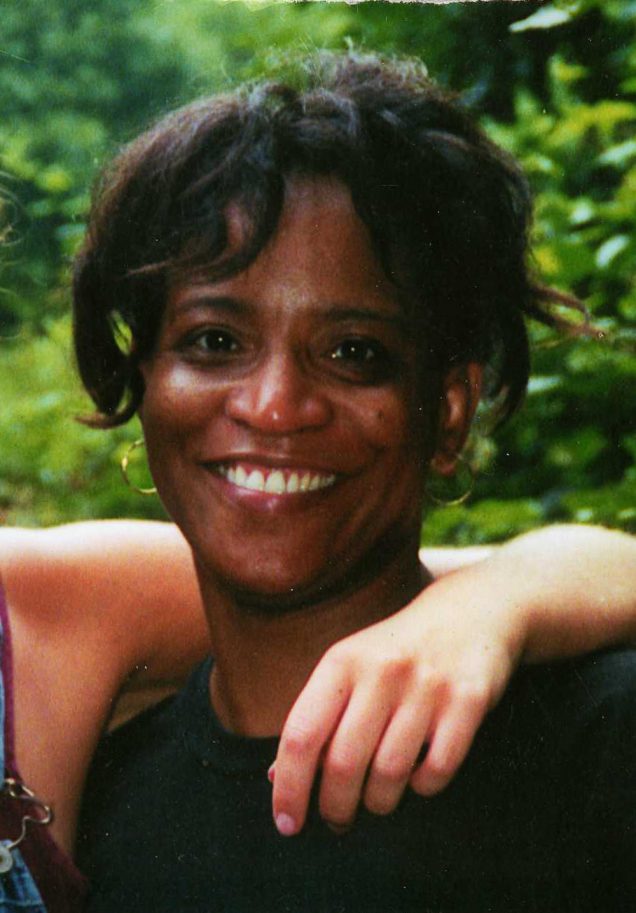John Hope Franklin and John W. Franklin
John Hope Franklin became a Boy Scout in the 1920s as scouting was first coming to children in the black community. One of his troop requirements was to do a good deed each day. At StoryCorps he tells his son John W. about the racism he endured at the hands of a blind white woman he had just helped across a street.
Originally aired March 27, 2009, on NPR’s Morning Edition.
Lori Armstrong and Janet Lutz
Janet Lutz (right) is a hospital chaplain who blesses the hands of the people who work there. She tells her friend Lori Armstrong (left) about coming across another hospital employee—a woman who prepare the surgical instruments—who prays for each of the patients going into surgery.
Originally aired December 19, 2008, on NPR’s Morning Edition.
Ledo Lucietto and Anne Lucietto
Ledo Lucietto and his daughter Anne talk about their shared passion for mechanical engineering that has been passed down through generations and discuss when Ledo first knew that Anne would become an engineer.
Originally aired December 12, 2008, on NPR’s Morning Edition.
Tom Kurthy and Robert Madden
Tom Kurthy (left) tells his friend Robert Madden about coming out to his parents. While his father was “very cool” about it, his mother initially took much longer to accept the news, blaming herself for his homosexuality.
Originally aired August 1, 2008, on NPR’s Morning Edition.
Betty Jenkins
As a young woman, Betty Jenkins received a gift from her mother, an inflatable bra with a straw-like tube that was used to inflate the pads in the cups and enhance its wearer’s figure.
As Betty tells it, “I was very skinny, and I didn’t have any curves. I guess my mother got kind of worried, because she didn’t think I had enough boyfriends…I was real excited, so I blew and blew to about [size] 32.”
During a plane trip in South America, while the plane was flying near the Andes Mountains, she began to feel pressure and sensed a problem. It turned out the cabin was not pressurized, and the bra, whose pads could be inflated up to size 48, was expanding.
Once is passed size 48, one of the cups burst, making a noise so loud that the co-pilot came out of the cockpit with a gun wondering what had happened. The plane ended up making an emergency landing, and Betty was handed over to the police who ordered her to strip as they looked for what they assumed was a bomb.
Betty’s mother, who passed away in 1967, enjoyed the story so much that she kept the broken bra. While the bra has been lost to time, Jenkins, 94, says that that the attention she received wasn’t the kind she was hoping for.
Originally aired June 27, 2008, on NPR’s Morning Edition.
David Shea and Alice Doyle
David Shea’s father, Denny, never spoke much about his past, but one Memorial Day he invited his son to come along with him to the cemetery where David learned about many of the important people in his father’s life.
Originally aired May 23, 2008, on NPR’s Morning Edition.
Eric Lamet
Eric Lamet and his mother lived as Jewish refugees in Italy during WWII. When the war ended, an Italian court declared his father legally dead, shortly after they got a postcard from him letting them know that he was alive and in a displaced persons camp in Austria.
Eric remembers the changed man he reunited with.
Originally aired March 14, 2008, on NPR’s Morning Edition.
Darryl Downes
Darryl Downes remembers discovering his talent while serving time in Sing Sing Correctional Facility.
Originally aired March 11, 2008 on NPR’s News & Notes.
George Hill
George Hill recounts the 12 years he spent homeless and living on the streets until he got himself to a hospital psychiatric unit and off the streets for good.
Originally aired February 22, 2008, on NPR’s Morning Edition.
Hector Black
In 2001, Hector Black’s daughter, Patricia Ann Nuckles, was murdered after she surprised an intruder in her Atlanta home. Her attacker was hiding in a closet, and when he asked her for sex, she told him he would have to kill her first. He then murdered her.
After learning more about the killer’s life, Hector and his wife went to the district attorney’s office and asked that prosecutors not pursue the death penalty. At StoryCorps he remembers his daughter and discusses how he came to make that request.

Originally aired February 8, 2008, on NPR’s Morning Edition.
Photo of Patricia courtesy of Hector Black.